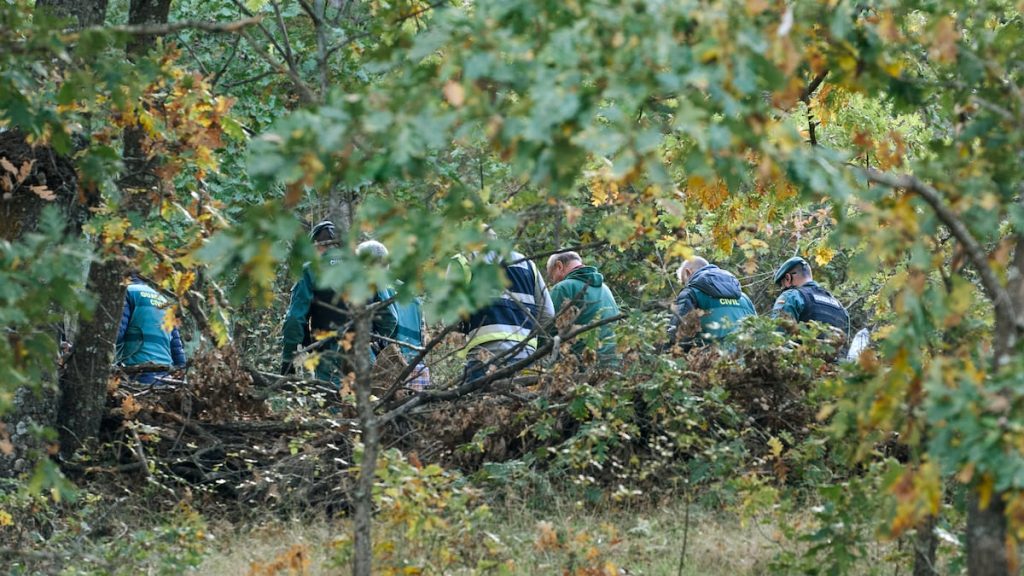The determination to ensure that no disappearance goes unresolved often pays off. A captain of the Civil Guard who implemented what he had learned in a course on investigations of missing persons ended up finding the way to solve a particularly high-profile case: the disappearance of Juana Canal in Madrid in February 2003. The course, organized 19 years after the woman went missing, taught law enforcement officials responsible for managing such cases the importance of reviewing unidentified bodies or remains in their areas. When the captain returned to his post, he put into practice what he had learned and, by entering the data, made a match, as explained by Marcial Bravo, head of service at the National Center for Missing Persons (CNDES), part of the Ministry of Interior. This example is now used in all training meetings.
It was one of those cases where two different police forces knew different parts of the same case. They just needed to connect them. Juana Canal disappeared in February 2003, when she was 38 years old, and her son reported her disappearance at the National Police station in Ciudad Lineal. Five days after receiving the course, on June 13, 2022, the head of the Judicial Police of the Civil Guard in Ávila discovered that some unidentified remains found by chance in April 2019 next to a road – a skull and a fragment of tibia – belonged to the woman. They reviewed the unidentified bodies and were drawn to the remains found in Navarredondilla, Ávila. Upon verifying their judicial status, they confirmed that the information held by the National Institute of Toxicology and Forensic Sciences allowed them to identify the body as Juana Canal’s.
With this identity, they uncovered a complaint that could be classified as gender violence and launched a joint investigation between the Civil Guard and the National Police to determine the circumstances of the woman’s disappearance and death. On October 17, 2022, they found new bone remains, and nine days later, Juana’s ex-partner, Jesús Pradales, was arrested. Pradales was convicted of intentional homicide last September by a jury and sentenced to 14 years in prison by a judge. The arrest of Pradales came just in time, as the case was about to expire in four months, emphasizing the excellent cooperation and joint work of the institutions involved, including the CNDES, police forces, the Institute of Toxicology, and the judiciary.
These training courses, attended by not only the National Police and Civil Guard but also autonomous police forces from Navarre, Catalonia, and the Basque Country, serve to allow agents to get to know each other and share their day-to-day experiences or discuss cases that have reached a dead end. They also provide new ideas or approaches to tackle them. The CNDES plans to create new working groups focused on long-term disappearances to help police forces improve or expedite their investigations using technical procedures. The center also plans to launch a free psychological support service for families of missing persons in the first quarter of 2025, addressing a major demand from families.
Since its inception in 2018, the CNDES has been responsible for missing persons at a national level in Spain. They address the needs of affected families and provide tools to improve investigations carried out by different police forces, as well as managing data and identifying deceased persons. Their PDyRH program, which has been in operation for four years, gathers reports from all police sources and compiles information on unidentified corpses and human remains, facilitating matches between the two. In 2023, there were 15,126 missing persons reported in Spain, with a resolution rate of 95.4%. Less than 1% of cases were closed with a death. The center also registered the identification of 294 previously unidentified corpses, exceeding results from previous years.
One of the most recent cases they closed involved a disappearance from 46 years ago in 1977, where the remains were finally identified. Despite the passage of so much time, the investigating agents were able to contact the family to deliver the news of what had happened. It is crucial for the public to know that these cases are actively being pursued, reinforcing the commitment of law enforcement agencies to solving missing persons cases and providing closure to families of the victims.


